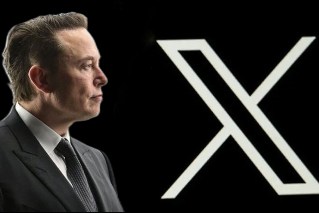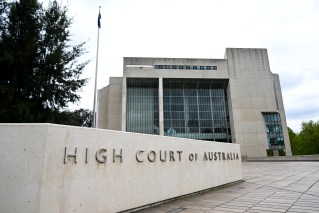Will Abbott have to pay Medibank policyholders?
• Exclusive: Medibank sale threat over ownership
• The advice that scuttled the Medibank sale
The Commonwealth of Australia became the sole shareholder of Medibank Private on 1 May, 1998.
In return for a paltry investment of $100, the federal government installed itself as the “full owner” of a new entity known as Medibank Private Limited that bulged with net assets of $282 million.
According to special legislation introduced by the Howard Government in 1997, Friday 1 May, 1998 represents “fund-transfer day” – the ostensible moment when policyholders ceased to have an ownership claim to the business.
The legislation required the Health Insurance Commission – Medibank Private’s manager since its inception in 1976 – to transfer the health fund’s assets to its new owner, the federal government.
Professor John Deeble, a HIC board member in 1998 and one of the people intimately involved in the foundation of Medibank Private, recalls that a few board members had misgivings about the transfer.
“I know that privately two or three commissioners were concerned but they did not voice those concerns at meetings,” he told The New Daily.
“It was a very awkward position that we were in and we knew it. We had a dual responsibility – in 1997 we had a directive from the government and we had to do it.”
Stumbling block for Abbott?
Today, the Abbott government is relying on the controversial Howard legislation – the Health Insurance Commission(Reform and Separation of Functions) Act – to help execute its proposed $4 billion float of the health insurer.
However, there’s a little problem that is complicating its preparations for a sale.
For many years before the reforms were enacted, Medibank Private’s policyholders were told in annual reports of the Health Insurance Commission that they were the beneficial owners of the fund’s assets.
As revealed in The New Daily last week, the commission’s public statements about ownership were neither frivolous nor misguided. Rather, they were founded on confidential legal advice given by the Attorney General’s Department in 1981 to senior ministers of the Fraser Government.
The Commonwealth’s 1997 move to establish full ownership raises the possibility that Medibank Private members were misled for many years about their rights to assets.

Professor John Deeble, 2004. Photo: AAP
Policyholders to be rewarded?
Deeble believes that longstanding members of the health fund might still have claims to the proceeds of the planned float.
“I think that in view of the way it(Medibank Private) was set up, policyholders may have an interest in the proceeds,” he told The New Daily.
“It is not clear whether the government can keep all the money.”
Deeble concedes that distributing free shares or proceeds of the sale to policyholders would be a tricky though not impossible exercise.
“Many of the longstanding policyholders who contributed capital before 1997 are now dead and assessing interests might be complex,’’ he said.
The problem with the 1997 legislation is that it does not appear to account for the public declarations about ownership made by the HIC after 1981 or the legal advice from the Attorney General’s Department.
Ethics of the deal
While this has triggered many legal debates, it also underlines ethical issues that have bedevilled the Commonwealth’s claim to full ownership. Until 2005, the Medibank business relied on the contributions of members to finance its operations.
Even though the government, had no capital invested in the business, it still saw fit to install itself as the sole shareholder. On almost any measure of transaction value, the federal government orchestrated a lucrative deal.
For just $100 it got the following assets that were previously recognised as belonging to policyholders:
Cash: $157 million
Receivables: $112 million
Investments: $279 million
Land and Buildings: $81.1 million
Plant and Equipment: $3.4 million
Total: $632.5 million
The government also assumed responsibility for the fund’s $350.5 million of liabilities. After subtracting these from the fund’s assets the net value of the transaction to the Commonwealth was $282 million.
The long-running debate over ownership of Medibank Private is largely reducible to the moment when the government’s share ownership took effect on 1 May 1998.
In the months leading up to the transfer of the assets, the legislation required the Health Insurance Commission to hold the fund’s assets and also the shares earmarked for the Commonwealth.
The HIC was then required to sell the assets to the government.
It was a technical transaction – mandated by statute.
Fund members were never given an opportunity to bargain with the government. Their rights were ignored. This was some kind of heist.
George Lekakis has been a finance journalist for 20 years, working at the Herald-Sun, the Australian Financial Review and Alan Kohler’s Eureka Report. He currently teaches investigative and business journalism at Monash University.







